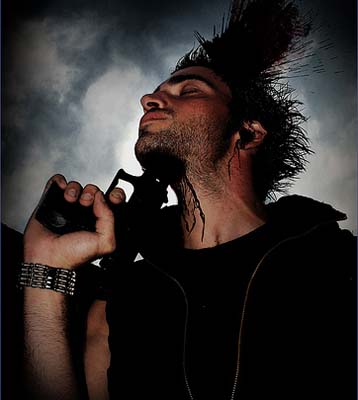One of my earliest memories from primary school religion lessons is that suicide is a grievous sin, one of the worst of all. If that is so, how serious is it to be responsible for another person's suicide? And how serious is it if that person is a representative of the Catholic Church, or indirectly, the whole impersonal structure of the Church itself?

The Church has by now become accustomed to being sued by survivors of clerical abuse, of boys, girls, and adults alike. It is also now accustomed to paying out large sums, as the result of court judgements, out-of court settlements, or (in some cases) plain hush money, all for abuse.
In Pennsylvania, it is now facing a monetary claim on different grounds, still arising from a case of alleged abuse. Michael Unglo was an abuse victim in the diocese of Pittsburgh, where he was molested for several years by Fr Richard Dorsch, who was later defrocked and imprisoned. After Unglo attempted suicide in 2008, Bishop Zubik promised him that the church would "right the wrong" that had been done to him, and began paying for psychiatric treatment. Earlier this year, he was told that a payment of $75 000 would be his last one. Two months later, he killed himself. (See "Suicide's family sues Catholic church", at UPI.com )
Now the family are suing the diocese for wrongful death, arguing that the diocese should have continued paying for his treatment.
I have no intention of getting into the rights and wrongs of this case, but there are some important and intriguing questions that arise here.
First, concerning this particular case, if the diocese had accepted initial responsibility for the treatment costs, why on earth did they suspend payment after only a couple of years? Mental health treatment around suicidal problems is never quick and easy.
More generally, if it becomes established that there is indeed wrongful death in this case, what will that mean for other abuse victims who have similarly killed themselves, before being offered treatment for that abuse? Very many survivors have received financial settlements for the damages received, and to pay for treatment. What of those who did not survive, and like Michael Unglo, took their own lives?
If it does become established that the church can be held responsible for the suicide of the victims of direct sexual abuse, what about suicides that arise from other forms of abuse - specifically, the mental and emotional abuse inflicted on young gay men and lesbians, or the physical abuse they endure in the name of "Christianity"
Youth suicide is a far bigger problem for gay and lesbians than for other youngsters. They endure verbal and physical bullying, and sometimes serious assaults. The bullies and assailants will often defend their actions as doing the "Lord's" work, or as punishing these people for their "sins". The Catholic church will insist (quite correctly) that it does not in fact promote such bullying themselves - but they consistently oppose state plans to counter bullying in schools, on the grounds that it will interfere with "freedom of religion". This sends a clear message to some people that homophobic bullying is permissible under "freedom of religion".
On the other side, the young people themselves are taught by the church that they are fundamentally "disordered", and that developing normal and healthy emotional and sexual relationships appropriate to their orientation is sinful and must be fought against, or borne as a "cross". Is it any wonder that some conclude that this cross is one they are not prepared to carry, and instead prefer suicide?
The fact of disproportionately high suicide rates among gay and lesbian young people is well -established. The link to religious-based homophobia, indirectly encouraged or condoned by church teaching, is also clear.
I do not want to argue that any court would or should make a clear connection of church culpability to one specific person's suicide. The "causes" of suicide are far more complex than that - but statistically at least, there is surely a case that the teaching and practice of some Christian churches, including the Roman Catholic Church, should be held responsible for contributing to driving an unknown but probably substantial number of young people to suicide.
So: I repeat my earlier question. Which is the greater sin - to take one's own life in response to unbearable bullying and emotional suffering, or to drive many others to do so, in a sadly distorted interpretation of the Gospel message?
No comments:
Post a Comment